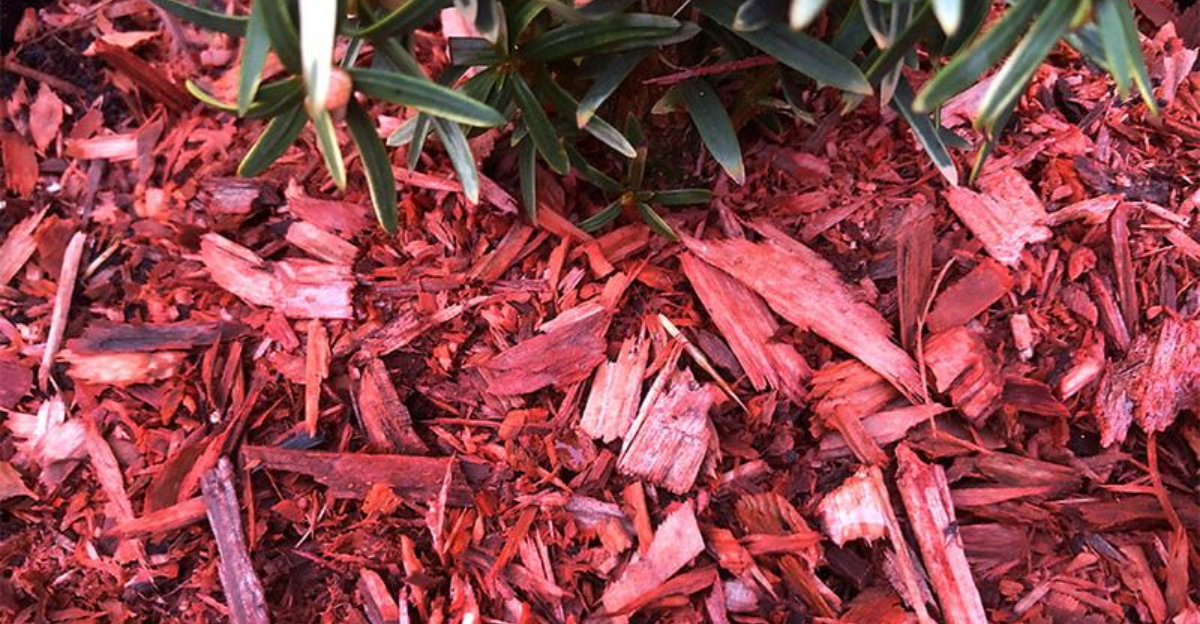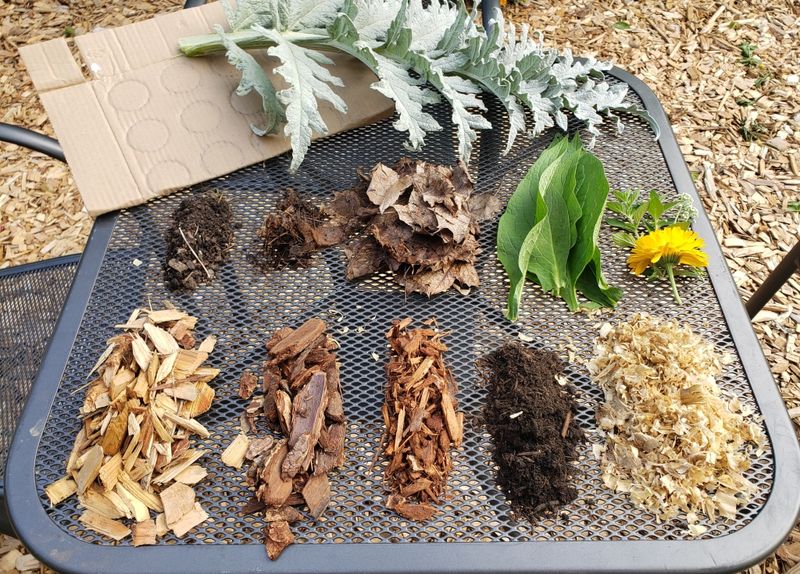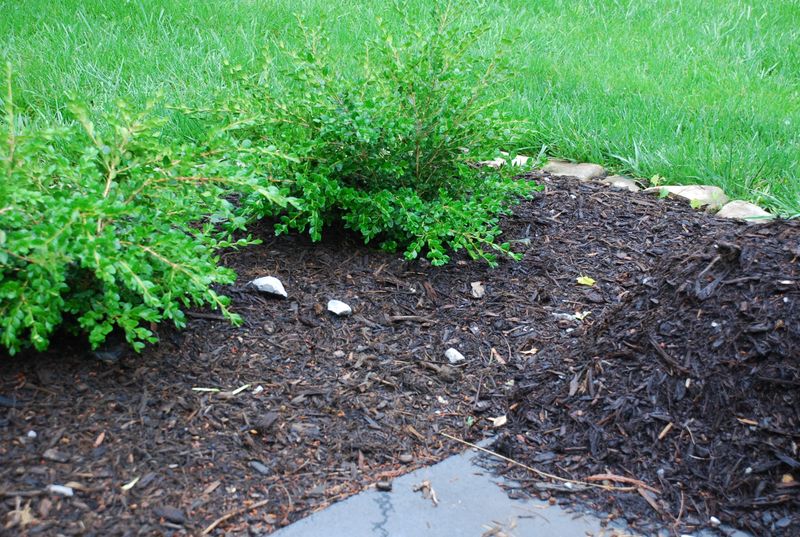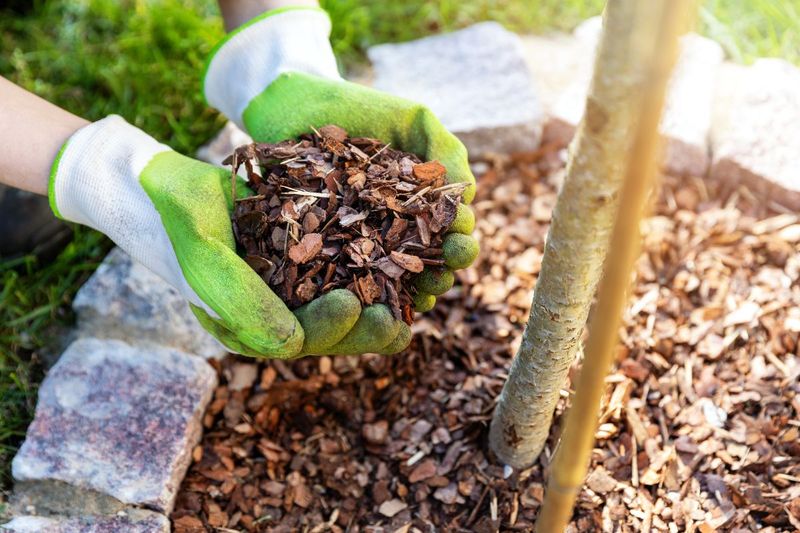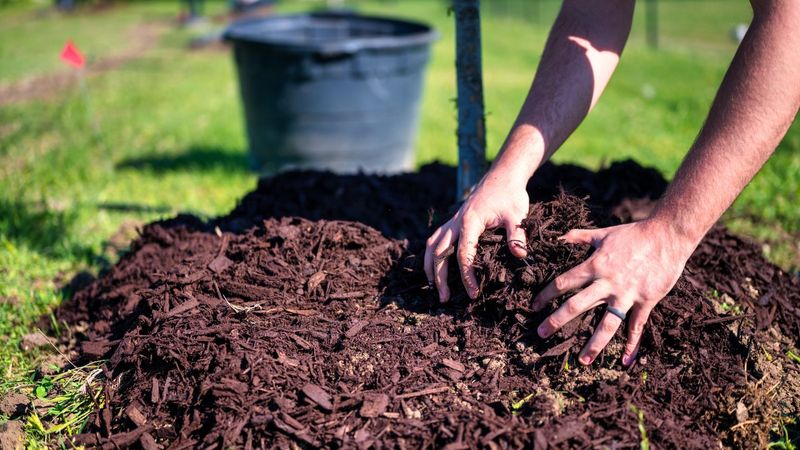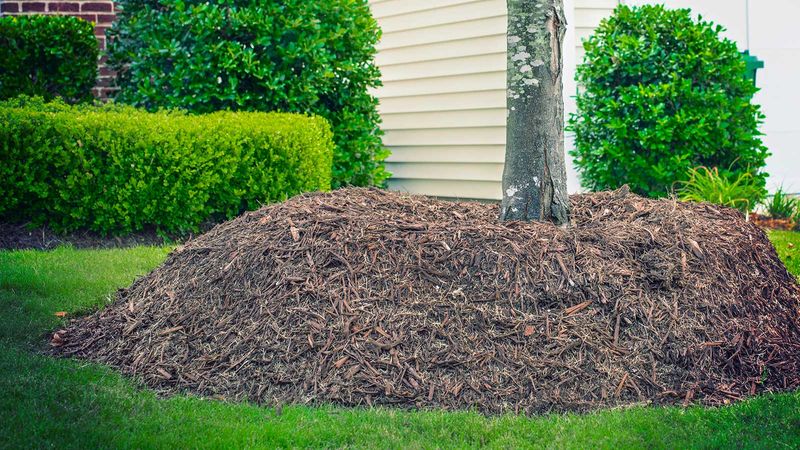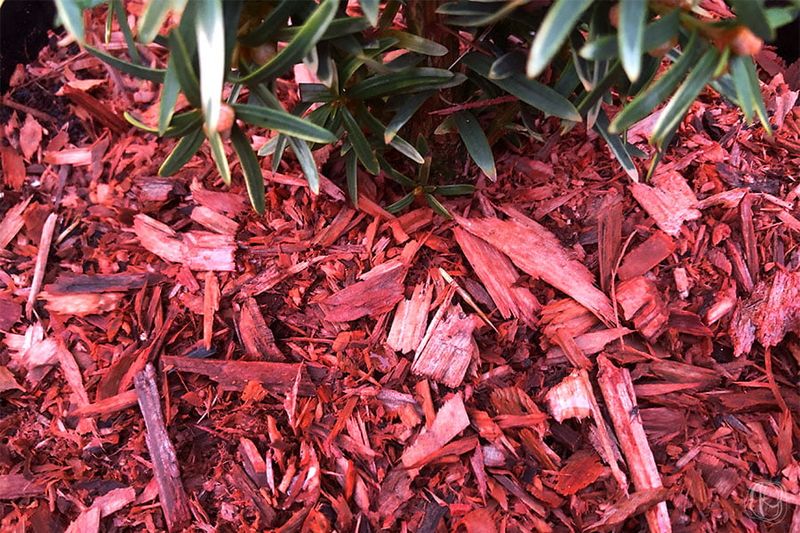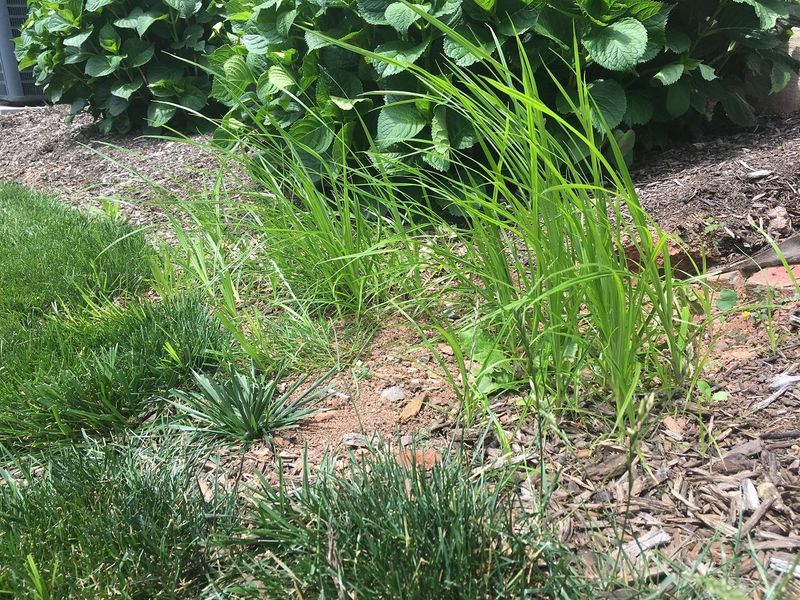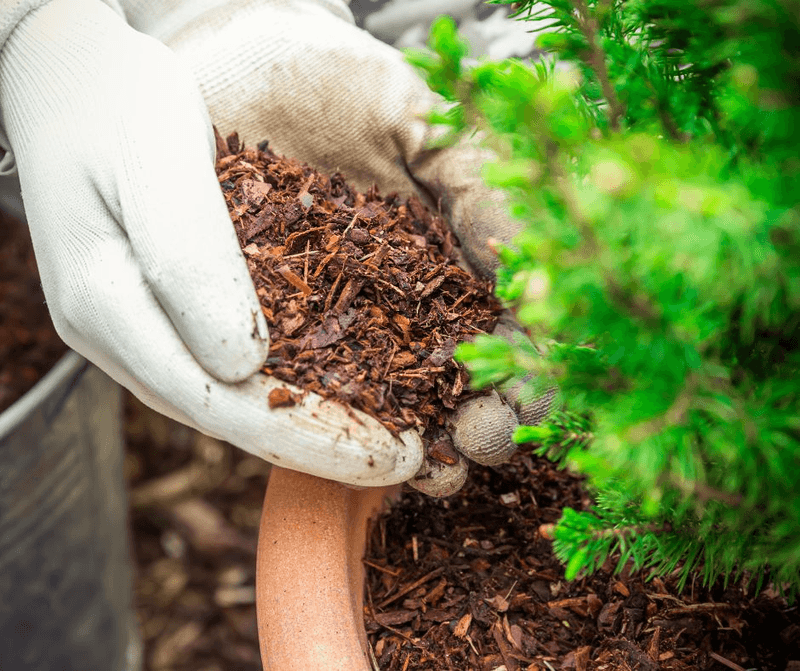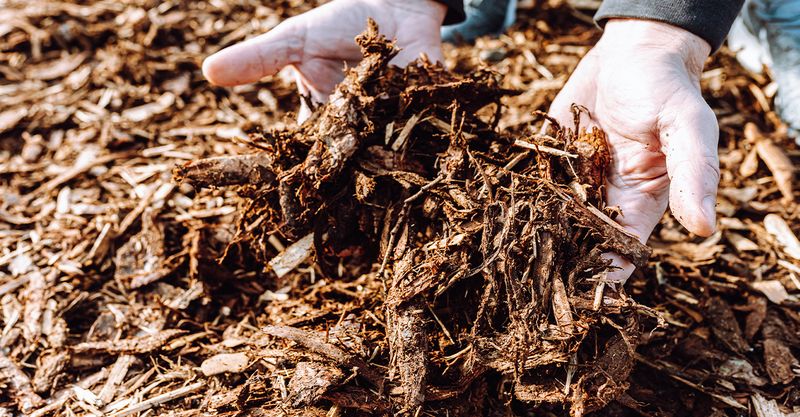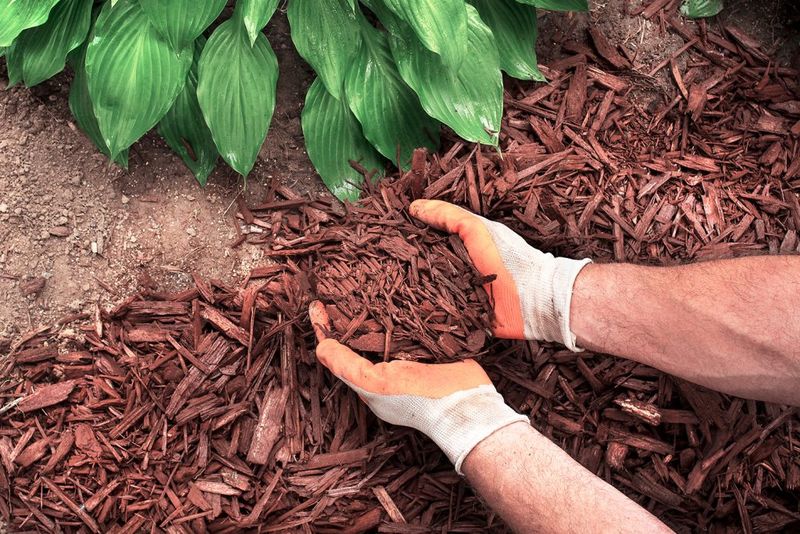Mulching is a garden practice that offers a myriad of benefits, from weed suppression to soil moisture retention. However, as with many gardening techniques, it’s not without its pitfalls.
As you lay down that comforting layer of mulch, there are hidden truths that often go unnoticed. Here, we uncover 10 mulch secrets that every gardener should know to ensure a flourishing, healthy green space.
1. Not All Mulch Is Created Equal
Gardening enthusiasts often rave about mulch, but not every mulch type suits every garden. Woodchips, straw, bark, and compost each have distinct characteristics that offer unique benefits and drawbacks.
Woodchips are excellent for decorative purposes but may not be ideal for vegetable gardens. Straw, on the other hand, is lightweight and easy to handle but can harbor pests. Bark is durable yet may take longer to break down.
Compost enriches soil, but its nutrient-rich properties might not always be necessary. Understanding these differences ensures that your mulch choice aligns with your garden’s specific needs.
2. Mulch Can Attract Pests
While mulch can be a gardener’s best friend, it can also become a haven for unwanted guests. Piling mulch too thickly, especially close to your home’s foundation, may invite pests like termites and slugs.
These critters find the moist, sheltered environment beneath mulch layers particularly inviting, which can lead to infestations. To minimize risk, make sure to keep mulch at least a few inches away from structures and avoid over-application.
This simple adjustment can save you from dealing with pesky invaders and keep your garden thriving.
3. It Can Steal Nitrogen—Temporarily
Fresh wood mulch, while aesthetically pleasing, can play a sneaky trick on your soil’s nitrogen levels. As it decomposes, this type of mulch temporarily ties up nitrogen, making it less available to young plants.
This nitrogen robbery might leave your budding greens struggling to thrive. To counteract this, consider using aged mulch or supplementing with nitrogen-rich fertilizers to balance the soil.
By understanding this process, you can enjoy the visual charm of wood mulch without compromising your plants’ health.
4. Mulch Depth Matters More Than You Think
A common mistake in mulching is not considering the depth of the layer applied. Too thin a layer won’t suppress weeds effectively, while an overly thick blanket may suffocate roots and impede air circulation.
Finding the right balance, typically around 2-4 inches, ensures that weeds are kept at bay and plant roots can breathe. This careful consideration of mulch depth can make a world of difference, helping your garden flourish without unnecessary competition or root stress.
5. Mulch Volcanoes Kill Trees
The sight of mulch piled high against tree trunks—dubbed ‘mulch volcanoes’—is all too common yet detrimental. This practice traps moisture against the bark, promoting rot and inviting diseases and pests. Such conditions can ultimately weaken and even kill a healthy tree.
To protect your trees, keep mulch a few inches away from the trunk, allowing the base to breathe. This simple change in technique supports tree health and longevity, ensuring a vibrant landscape.
6. Some Mulch Has Hidden Toxins
Not all mulch is as innocent as it seems, particularly dyed or treated varieties. These mulches, often derived from recycled wood, may contain harmful chemicals that leach into the soil.
Such toxins can negatively affect plants and beneficial soil life, hindering growth and ecosystem balance. Opting for untreated, natural mulch variations ensures a safer, healthier garden environment.
Awareness and cautious selection play crucial roles in maintaining the vitality of your green space.
7. It Doesn’t Eliminate Weeds—Just Slows Them
Mulch is often hailed as a miracle weed suppressant, but the truth is, it merely slows their growth. Persistent weeds, especially aggressive ones, can still push through even the thickest mulch layers.
Regular maintenance and vigilance are key in keeping these pesky intruders under control. Pairing mulch with other weed prevention strategies, like landscape fabric or pre-emergent herbicides, can offer more comprehensive control. Embracing a multifaceted approach helps you maintain a pristine garden.
8. It Changes Soil Temperature
Mulch acts as an insulator, regulating soil temperature throughout the seasons. In the spring, it may delay soil warming, which can affect early planting. However, during the heat of summer, it protects roots from extreme temperatures, preserving moisture and promoting plant vigor.
This temperature modulation underscores the importance of knowing your garden’s needs and adjusting your mulching practices accordingly. Being mindful of these seasonal shifts allows your plants to thrive year-round.
9. Organic Mulch Feeds Soil Life
Besides its practical applications, organic mulch serves as nourishment for the soil. As it decomposes, it enriches the earth, supporting earthworms and beneficial microbes essential for healthy plant growth.
This slow-release composting effect enhances soil structure and fertility over time, creating a robust environment for your garden. By choosing organic mulch, you invest not only in immediate aesthetics but also in the long-term health of your garden’s ecosystem.
10. You’ll Probably Need to Reapply It
Mulch isn’t a one-time fix; it requires regular attention and replenishment. Over time, organic mulches decompose, losing their volume and effectiveness. This natural process calls for periodic reapplication to maintain optimal coverage and benefits.
Typically, topping up once or twice a year ensures your garden remains well-mulched and protected. Recognizing this ongoing commitment prepares you for a more sustainable approach to gardening, keeping your outdoor spaces lush and thriving.
